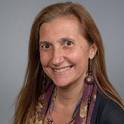Article
An Expert Discussion on Autism in Adulthood in Low- and Middle-Income Countries
Autism in Adulthood
Document Type
Article
Publication Date
12-1-2019
Disciplines
Abstract
Globally, >80% of the population live in low- and middle-income countries,1,2,* 95% of all countries,3 and 75of ∼120 countries in which an autism-specific organization has been established are low- and middle-income countries.4 However, most autism research is based in high-income countries and despite an increase in autism research, a vast majority of individuals on the autism spectrum continue to be unrepresented in autism research.
Locate the Document
DOI
10.1089/aut.2019.29006.njs
Persistent Identifier
https://archives.pdx.edu/ds/psu/30814
Citation Information
Singhal, N., Nicolaidis, C., Ratazzi, A., Corrons, T., Hossain, S. W., Azeem, Q. F., ... & Muriuki, K. (2019). An Expert Discussion on Autism in Adulthood in Low-and Middle-Income Countries. Autism in Adulthood, 1(4), 241-247.

Copyright 2019, Mary Ann Liebert, Inc., publishers